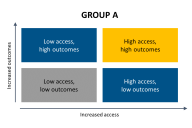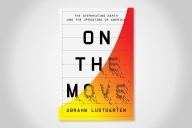You have /5 articles left.
Sign up for a free account or log in.
In 2019, Georgetown professor Cal Newport wrote an article for The Chronicle that carried the provocative title "Is Email Making Professors Stupid?"
That article went on to be one of The Chronicle’s most-read pieces, a response that resulted in Newport’s new book A World Without Email (which I plan to review for this space).
Riffing on Newport, the time has come to ask if Zoom is making staff stupid.
My fellow academic staff -- please take a look at your calendars. If your work life is like mine, your days and weeks are run through your online calendar. That calendar, I suspect, is full of Zoom meetings.
Am I wrong?
As a result of COVID, academic staff pretty much moved into Zoom and never left. Zoom is our new home. We may think we are working remotely, but what we are really doing is working in Zoom.
The silent epidemic of nonfaculty academic work is the back-to-back-to-back Zoom meeting. How many of us spend the majority of our days peering at each other in little boxes?
How often have you uttered these words in the past 12 months: “Um … I think your microphone is muted”?
The problem with all these Zoom meetings is that they are meetings. The issue is not Zoom. Or any synchronous communications platform. There are many reasons why Zoom meetings can be superior to face-to-face meetings.
The status hierarchies that govern meetings can be more easily subverted in Zoom if you are aware and proactive.
Zoom meetings can be more efficient than face-to-face gatherings, as travel time is eliminated and documents can be easily shared and discussed.
With all these Zoom meetings, academic staff have less time to focus on concentrated work.
We don’t have time to do the actual work that we talk about in meetings, as we are always in meetings.
My hypothesis is that during COVID, the number of meetings that most academic staff now attend has increased significantly. The reason we go to more meetings is that we can. With no travel time between buildings to account for, we use that extra time to attend Zoom meetings.
The integration of Zoom and Outlook has also done much to reduce the friction of meeting planning. On my Outlook calendar, I can instantly see my colleagues’ availability -- and then send a Zoom meeting invite with a couple of clicks.
All those folks who are cc’d on our emails now become people we invite to Zoom meetings.
Turning down an invitation to participate in a Zoom meeting is difficult. As the concepts of work and Zoom meetings become intermingled, turning down a Zoom meeting might signal that you are rejecting work.
Norms of reciprocity and the imperative to signal productivity all encourage both Zoom invites and acceptances.
Zoom is making academic staff stupid because we no longer have time for the deep, focused and concentrated work necessary for clear thinking and new ideas.
Newport thinks that email is to blame for eating away at focus and concentration. He was writing before COVID and through faculty eyes. Zoom has joined the pantheon of the hyperactive hive mind, with the difference that we can’t turn it off.
Professors are lucky that they live in a different meeting culture. While it is universal for staff to keep an accessible free/busy online calendar like Outlook, faculty are more hit and miss. Professors are doing their share of Zoom for teaching and meetings, but my guess (from my limited sample size) is that they have a more balanced digital diet than staff.
The solution for academic staff is, of course, to participate in fewer Zoom meetings. Invite fewer people to your meetings and say no to invites. Block off time on your calendars for focused work.
Good luck with that. Let us know how that works out for you.
We staff are living in Zoom, and I worry it is making us dumb.
Gotta run to my next Zoom meeting …








